Today I’m welcoming Thriller writer C. H. Little to the First Draft hot seat.
 C. H. Little was born in Durham, England, but moved with her family at the age of seven to St Helens in the North West of England. Her parents were both teachers, and she grew up in a world surrounded by books. At school she developed a passion for writing and her favourite lesson was English Literature. She attended Hull University from 1994-1997, where she studied a Joint degree in English Literature and Drama. In 1999 she trained as a teacher at Liverpool University and qualified as a high school teacher in 2001. She has been teaching English at a girls’ high school in Manchester for the last eleven years, but loves to write in her spare time. In 2001 she met her husband Marc through some friends, and they went on to marry in 2006. They now live in Warrington in the North West of England with their two children, Daniel and Amy. In 2013 she began writing when she was struck by an idea for a good thriller whilst on holiday in Menorca with her family. Escape, which she completed in the autumn of 2013, is her debut novel. She is currently working on the sequel.
C. H. Little was born in Durham, England, but moved with her family at the age of seven to St Helens in the North West of England. Her parents were both teachers, and she grew up in a world surrounded by books. At school she developed a passion for writing and her favourite lesson was English Literature. She attended Hull University from 1994-1997, where she studied a Joint degree in English Literature and Drama. In 1999 she trained as a teacher at Liverpool University and qualified as a high school teacher in 2001. She has been teaching English at a girls’ high school in Manchester for the last eleven years, but loves to write in her spare time. In 2001 she met her husband Marc through some friends, and they went on to marry in 2006. They now live in Warrington in the North West of England with their two children, Daniel and Amy. In 2013 she began writing when she was struck by an idea for a good thriller whilst on holiday in Menorca with her family. Escape, which she completed in the autumn of 2013, is her debut novel. She is currently working on the sequel.
When you decide to write something new, what is the first thing you do?
I generally have a basic idea of what will happen in my story, but then I just start writing and see where it takes me. I tried writing a novel a few years ago and planned the whole thing out: every character, every plot detail, every chapter, and I found I never got it finished. The thought of writing sixty chapters was incredibly daunting and it put me off, whereas if I just start to write with only a simple idea for a plot, then often my writing develops in unexpected directions. That’s when things happen which I hadn’t planned for, which is really exciting.
Do you have a set routine approaching it?
At the moment I only write in my spare time as I have a demanding part time job as a teacher and two young children, so it’s very important to have set times where I make sure I am writing. I don’t work on Thursday and Friday mornings, my son is at school and my daughter at nursery, so I make sure I sit straight down after the school run and get two hours done before I need to collect my daughter at 11.30. It’s amazing how much I can get written in that time!
Pen and paper or straight to the keyboard?
I generally go straight to the keyboard, as it’s far easier to edit and amend my writing when it’s saved in document form, but I had the idea for my last story Escape on holiday in Menorca and wrote over 7,000 words in a notepad whilst we were there. As soon as I got home, I typed up the draft and word processed the rest, but I do think old fashioned pen and paper are vital and like to use a notepad and pen to jot down ideas wherever I am and keep lists of where I’m up to.
How important is research to you?
I hadn’t realised the importance of research until I completed the first draft of Escape. I try to write about places and situations which are fairly familiar (until I get to the dramatic criminal parts, which are entirely fictional obviously!) but even though Escape is set in a real place where I have been on holiday, I found there were things I didn’t know about and had to look up. Despite taking plenty of pictures and gathering leaflets to make sure I had lots of information about the setting, I still found myself having to check certain details to make sure the story was as realistic as possible. Some of Escape is set on a yacht, so I needed to look into terminology linked to boats, and I also included a section on prescription drugs which I could not confidently name until I did some research.
How do you go about researching?
I have so far used the internet and people within my own family and friendship circle, for example my Dad knows quite a bit about boats and helped me with the yacht terms. I am very aware that information on the internet is not always guaranteed to be correct, and may therefore have to look further afield to find things out in future novels, or else stick to characters and concepts I know about or have a reliable source of information on. One idea I have for a novel is set in a school which, as I have been a teacher for the past 12 years, I should be able to tackle convincingly!
How do you store everything; ideas, research, images that catch your eye?
I have a notebook where I store ideas and jot notes I don’t want to forget. Other than that there is a folder on my desktop entitled “Fiction”, where I save other documents and images I might find useful.
Tell us how that first draft takes shape?
Bit by bit. I can write around 2,000 words in a 2 hour stretch if I’m in the right frame of mind – not that all of those 2,000 words will be good ones. I find myself longing for my Thursday and Friday mornings when I can sit straight down at my keyboard and get the next chapter of the novel written. I have very little time other than these two mornings, but those precious hours are silent and interruption-free. I try to write short sections at other times, but find that in the evenings I’m often too tired and during the day when the family are about I end up getting too distracted to achieve much.
Are there any rituals you have to do or items you must have with you while writing that draft?
No real rituals – I just value silence which, as I said, I don’t get very often, so I’m quite protective of my Thursday and Friday mornings. I get quite frustrated if there is something else I have to do in that time slot.
Does the outside world exist or are you lost to us for a period of time as the magic works?
I often get completely lost in my novel and have to set myself a timer to make sure I’m not late to collect my daughter from nursery!
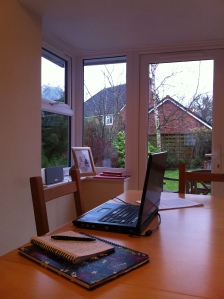 What does your work space look like?
What does your work space look like?
I generally work on my laptop in our dining room at home. It overlooks the garden and on a sunny day is really warm and pleasant. The table has to be clear before I begin – I’m pretty tidy and can’t work unless the space around me is organised and clutter-free.
Edit as you go or just keep getting words out?
I try to just keep getting the words out on to the page. If I start trying to edit before the book is complete I fear I would never finish, and just end up getting lost in the tiny details of the story. As I begin each session of writing, I skim-read the section I have just completed, perhaps changing a word or two, and then continue with the story. Then, once the whole story is complete, I go back and edit.
I see many writers counting words in a day. Word counter or other method of keeping track of progression?
I do use the word count function regularly. Sometimes it spurs me on, especially if I have written more than I thought I had, but on a bad day it depresses me that I haven’t got as much as I wanted complete. Often it takes me more words than I expect to write what I want to, so the word counter lets me know how long it has taken me to tell a particular section of my story and how far along I am with the general plot.
So, that first draft is down. Roughly how long did it take? And what shape is it in?
Well Escape, my last book, is a novella and only 26,000 words. It took me around 4 months to write, and once the initial draft was completed it wasn’t bad. When I read it back it was too wordy though: I have a tendency to write rather long sentences and describe things in a bit too much detail to begin with, but that’s better than not writing enough, I think. It’s far easier to select the better words and cut out the ones which are less effective, than rack your brains coming up with more new ones!
In what format do you like to read it through, ereader, paper or the computer screen?
I do read through my draft on my computer screen at first, for ease of editing. I also look at later drafts on my Kindle to see how the story looks to a reader, but I find proofreading far easier on paper: errors are somehow far easier to spot that way, perhaps because I’m a teacher and used to marking work on paper.
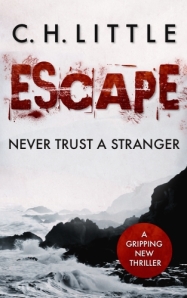 What happens now that first draft is done?
What happens now that first draft is done?
I edit, edit and edit some more! I also send a copy of the edited draft to a couple of family members for their opinions and contributions, which are invaluable. Finally, I start to get excited about publishing. Once a draft is complete then the hardest work is done and you have a story which, with a little work editing, can be published, which is surely every writer’s ultimate goal.
Thanks for digging into the depths of the first draft. It’s been a pleasure having you.
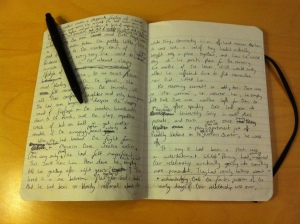

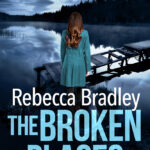
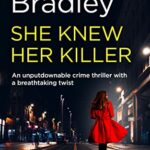
Rebecca – Thanks for introducing us to C.H.
C.H. – I know exactly what you mean about having a demanding schedule. It is important isn’t it to make as much use as you can of what time you have. And I like the way you approach stories: having a general idea, but at the same time letting the story evolve. I wish you much success.
Thanks Margot! It’s nice to have encouragement. I do find it difficult making the time to write but it’s so vital. I certainly don’t waste the time I have.
The sequel to Escape doesn’t have a concrete ending as yet but is evolving nicely as we speak!
Two thousand words in two hours – I am in awe! That would take me six hours.
When you don’t have much time you make the most of it Alex. I did say they weren’t all good ones!
I have to agree with Alex, that’s an impressive writing speed.
Thanks Gwen. I’m only that fast on a good day! I did once manage to draft a 15,000 word revision guide in 2 days. Teaching kind of makes you good at getting things done quickly!
I’m a terrible procrastinator, I’d be so scared of doing the hoovering in those 2 hours instead of writing! But I’m lucky in that my kids are older and don’t need me so much. I got very little writing done when my kids were very young. Good luck with your novella.
Thank you Annalisa. I do struggle sometimes but try and stay focused on the actual writing – although promoting my book on social networking sites also takes up a large chunk of my time now. I am hoping that as my children get older I will be able to get more done, For example my daughter starts full time school in September and I will have all day from 9-3pm to write, two days a week. Luxury! Whilst not wanting to wish away my time with her, I do look forward to a longer slot in which I can really get stuck into my books. For mow, I’ll soldier on with the four hours a week I have, and turn off Twitter and Facebook when I do get the chance to write!
I loved the interview, and your blog category, Rebecca! I’m now following your blog and won’t miss future First Draft interviews. C.H. and I have quite a few things in common: I too have to go to work twice a week, I have a three-year-old daughter who’s just discovered books and whenever she sees me sitting at the desk, she climbs on my lap with a book which I have to read to her about a dozen times, and I also crave for the two-three mornings when silence reigns in the house. I have completed a novel (Fate Accomplis, a contemporary romance) which will soon be professionally edited, and I’m now working on the second book in my Aegean Lovers series (I’m Greek) but it’s coming along a lot slower than I would have wished for. One of the reasons is my tidiness, as C.H. mentions; I can’t sit down to write when I feel there’s housework to be done–it weighs me down and messes with my writing. However, I’ve noticed that by the time I clean, tidy, cook etc. my morning is gone and I’m already tired. My new year’s resolution, therefore, is to try and “pretend” that my space is spick-and-span and just sit down and write. As writers we’re good at making up stuff, right?
Well MM Jaye I don’t seem to suffer from the same level of necessary tidiness as you do-I can happily ignore the rest of the house as long as the room I’m working in is clear! Pretending the mess in other rooms isn’t there works a treat!
Working when you have kids is never easy, but publishing a book is such a fantastic achievement. I wish you every success with your novel and look forward to hearing of its publication.